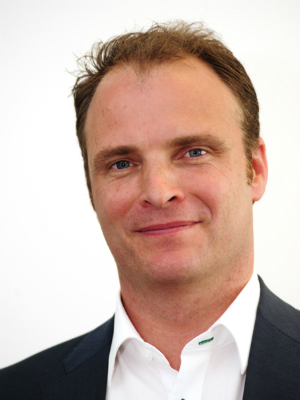24 November 2015
View Webinar Content
Presentation—Christian Mahler: Tool for Rapid Assessment of City Energy (TRACE)
Presentation—Maryke van Staden: Tools for Building Energy Efficiency: Resources for Policy Development
Presentation—Jennifer Layke: Building Efficiency Accelerator: Where does the BEA go from here?
Presentation—Maryke Van Staden: Tools for Building Energy Efficiency: Resources for Policy Development
Transcript—Webinar audio transcript
The Clean Energy Solutions Center, in collaboration with the Copenhagen Centre on Energy Efficiency (C2E2), the World Resource Institute (WRI) and ICLEI—partners to the Sustainable Energy for All Building Efficiency Accelerator—hosted this webinar training on publicly available analytical tools for local governments and other stakeholders to accelerate building efficiency improvements.
Webinar panelists presented tools for local policymakers to set energy use baselines in their cities and identify policy options for enhancing energy efficiency in buildings. They described the roles tools can play along the stages of the policy development process, described a method that cities can use to select tools that are most appropriate to their needs and explored how tools can help in understanding the local situation on energy efficiency and identifying priority opportunity areas.
The webinar began with an overview of the decision tree framework developed by C2E2 and WRI for mapping tools to particular stakeholders, building types and stages of the policy development cycle. The overview was followed by case studies on the application of two tools (Common Carbon Metric and TRACE) in cities and discussion of their impacts on local energy efficiency actions. At the end of the webinar, implications were discussed for how tools can help cities accelerate their energy efficiency efforts and the support the Building Efficiency Accelerator can provide. Presentations were followed by an interactive question and answer session with the audience.
Panelists
 Ksenia Petrichenko
Ksenia Petrichenko
Dr. Ksenia Petrichenko is a Researcher at the Copenhagen Centre on Energy Efficiency (C2E2), which is a part of UNEP-DTU Partnership. Mrs. Petrichenko provides analytical support to the Sustainable Energy for All (SE4ALL) initiative through research on energy efficiency and renewable energy best practices. She has a PhD in Environmental Sciences from Central European University, as well as MSc in Environmental Sciences and an MA in Economics.
 Peter Graham
Peter Graham
Peter Graham has been the Technical Advisor and past Coordinator of the United Nations Environment Programme’s (UNEP) Sustainable Buildings and Climate Initiative where he developed and managed many of UNEP’s key projects and publications in the building sector. He comes to the GBPN from a position as Head of Discipline for Architecture & Design at the University of New South Wales, Sydney, Australia. In these roles, Peter worked closely with the public, civil and private sectors to assist the global transition to a sustainable building and construction industry.
 Christian Mahler
Christian Mahler
Christian Mahler is a German national and has four years of professional experience in energy efficiency. Before joining the World Bank's Energy Sector Management Assistance Program (ESMAP) in May 2014 as an Energy Specialist he worked as a Climate Change Mitigation Specialist for Deutsche Gesellschaft für Internationale Zusammenarbeit (GIZ). Christian has been working with cities in Africa, Asia and ECA to tap energy efficiency potentials across urban sectors.
 Maryke van Staden
Maryke van Staden
Maryke van Staden is a Low Carbon Cities Program Manager and Director of the Bonn Center for Local Climate Action and Reporting (carbonn Center). Maryke coordinates ICLEI’s low carbon strategy, working with local governments around the globe. She manages the carbonn Center, helping cities and towns of all shapes and sizes to report their climate action, and working closely with staff in all 17 ICLEI offices on 3 areas: coordinating technical support to local governments through ICLEI’s GreenClimateCities program and projects such as Urban-LEDS; operating global processes and systems, including the carbonn Climate Registry and the Transformative Actions Program (TAP); and conducting global climate advocacy on behalf of cities and towns through ICLEI’s role as Local Government and Municipal Authority (LGMA) Constituency focal point at the UNFCCC (United Nations Framework Convention on Climate Change) and as facilitator of the international Local Government Climate Roadmap. Maryke is a South African with more than 25 years of professional experience in policy and security and, in the last decade, she has specialized in sustainable energy and climate change at the community level. She joined ICLEI Europe in 2006 and the World Secretariat in 2013.
 Jennifer Layke
Jennifer Layke
Jennifer Layke is the Director of the Building Efficiency Initiative of the WRI Ross Center for Sustainable Cities. Jennifer leads the Building Efficiency Initiative’s research and collaboration with WRI cities teams and global buildings experts. From 2010 to 2014, Jennifer ran Johnson Controls’ Institute for Building Efficiency a global initiative to provide information and analyses on the technologies, policies and practices to deliver high performance buildings. In addition, she supported strategic planning on corporate energy, sustainability and policy goals. Jennifer’s prior experience includes 12 years at the World Resources Institute where she was deputy director, Climate and Energy Program. She founded The Green Power Market Development Group, which developed innovative energy procurement paths for corporate use of clean energy in the United State and Europe. Jennifer also managed corporate partnerships focused on strategies to reduce greenhouse gas emissions and was the lead for WRI’s participation in USCAP, a partnership of environmentalists and business providing consensus recommendations on carbon cap-and-trade policy approaches.
 Nate Aden, Research Fellow, World Resources Institute
Nate Aden, Research Fellow, World Resources Institute
Nate’s research at the World Resources Institute focuses on industrial sector emissions productivity, methods to align company GHG targets with ambitious climate scenarios and the role of buildings in low-emissions urbanization. Prior to joining WRI, Nate served as a Senior Research Associate at Lawrence Berkeley National Laboratory. He has degrees from Cornell University, Stanford and the University of California at Berkeley.
